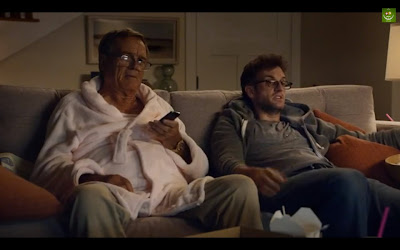
From The Chicago Tribune…
Diversity fades as you move up the corporate ladder
We’ve gotten content with workplace diversity, when much more work remains
By Rex Huppke
People in the working world love to pat themselves on the back for a job well done, even if it turns out the job isn’t finished. It’s a part of the workplace mindset — we see a problem, we address the problem, we say “hooray!” and we move on, often prematurely.
That’s what has happened with diversity in America. There have been great strides in diversifying workplaces — the glossy corporate photographs show inspiring mixes of races and genders, leading some to conclude: We did it. We diversified our workforce.
But then your eyes move up the corporate ladder, and the rich diversity fades into a lot of white men.
According to the Alliance for Board Diversity, white men filled more than 70 percent of the seats on the boards of Fortune 500 companies between 2010 and 2012. And DiversityInc Best Practices in June tallied minority CEOs at Fortune 500 companies: six black, eight Asian, seven Latino, and 21 women.
“We’ve been talking about diversity for 50 years, yet the progress in the form of representation has not changed very much,” said Tyronne Stoudemire, senior diversity consultant at Mercer, a global human resource and financial services consulting firm. “We admit the issue, we talk about the issue, but the work that’s behind it — people aren’t willing to roll their sleeves up and really get involved. We’re unconsciously incompetent.”
He gave a wonderful description of the problem. Imagine corporate America as a glass of white milk. You pour in chocolate syrup, but unless you mix it up, that syrup settles at the bottom and everything tastes the same.
“You’ve got to mix it up,” he said. “Organizations are diverse, but the diversity stays at the bottom. You’re not promoting; you’re not advancing.”
Frank Dobbin, a professor of sociology at Harvard University who has studied diversity programs extensively, agreed with Stoudemire’s assessment.
“We interview a lot of HR managers and top managers at firms, and we ask them how they’re doing on diversity, and they say, ‘Oh, good, 40 percent of our staff is female or minority,’” Dobbin said. “Then we ask how promotion up the ranks is going, and they’ll almost uniformly say, ‘Terrible.’”
Dobbin’s research has found that many diversity programs “don’t have any effect at all or backfire” at a cost of time and money.
He highlighted two typical approaches. One is to teach managers about their own bias, an idea most people tend to resist and one that implies that managers are to blame for a lack of diversity.
The other is to control managers by implementing strict rules regarding hiring and promotion. Dobbin said managers prefer to solve problems on their own rather than having to conform to specific guidelines.
“It doesn’t work to blame managers and tell them they’re biased or try to control them through bureaucratic rules,” he said. “That doesn’t make them happy, and in the end it’s not effective.”
Stoudemire offered his timeline of how the business world has handled diversity. From 1964 to 1988, the focus was mainly on compliance with anti-discrimination laws. From 1989 to 1995, there was a shift to things such as tolerance and sensitivity training.
That rarely led anywhere, he said: “I’ll tolerate you, but at the end of the day, I just want you to go away.”
From 1996 to the present, more of a business case has been made for diversity. Companies have realized not only that diversity is the right thing to do from a fairness standpoint; it’s also good for business, because diversity of workers brings a diversity of ideas.
But clearly, we’re still stumbling.
Dobbin said his research has identified some of the more effective ways to promote diversity up the ranks.
One of the best, he said, is the formation of a diversity task force. (The word “task force” can make any worker’s skin crawl, but hear him out.)
“They work very well because they give the job to the managers,” Dobbin said. “If I’m the CEO and I say I need six department heads to form a diversity task force that will meet once a month for a year and I want to see some results, there will be results.”
That challenge will lead to managers who better understand and appreciate diversity and will likely knock down some internal barriers in the process.
Another effective program involves mentoring, Dobbin said. Pairing up senior executives with management aspirants of all races and genders works because the senior people will want their younger counterparts to succeed. And again, this breaks down barriers that exist not only between people of different races or genders, but also between people at different levels of the company.
This is a tough issue, as evidenced by the fact that we haven’t figured it out. But it’s hugely important. Diverse workplaces are more productive, more innovative and better reflect the clients they serve.
It’s something companies must keep pressing on, if not for pragmatic reasons then certainly as a matter of fairness.
“People are looking for this big, enormous, aha moment,” Stoudemire said. “But it really is about treating people fairly, with dignity and respect, the basic things our mother and father taught us.”
You’re bringing a diverse array of people to the tree with the treehouse. Why not show them the ladder up?


















































